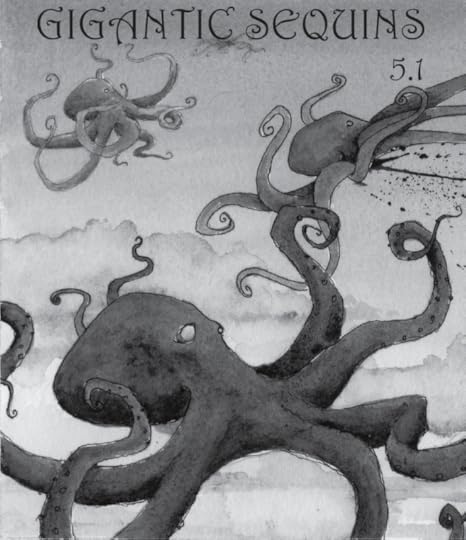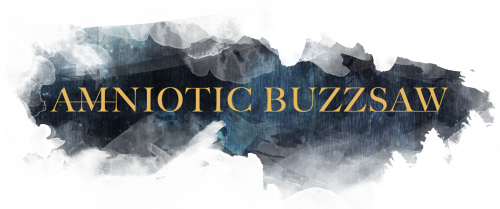Chas Hoppe's Blog
April 7, 2016
4 Little Freelancing Tips
Here’s the thing about freelancing: If you’re considering it, you already know that you’re pretty darn good at something that a lot of people want. But being good at something is only part of being in business for yourself. How do you make money? How much should you expect to make? How do find clients—and what happens when they don’t pay you?
All these questions came up in a recent e-mail exchange in which I was recently involved. But these questions are helpful for anyone, so let’s talk about them.
#1: If I wanted to freelance about X hours a week, how much do you think I’d make?
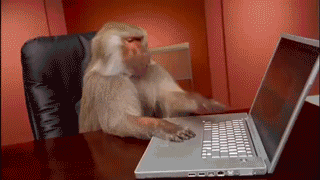
I’m still pretty surprised that pounding away at a computer by myself all day somehow leads to money.
Simply put, I just can’t say how it will work out for you. I like how much money I make, but I know I could be making more if I were more ambitious. For now, I make enough so that I can draw on golf balls with my friends in some sort of convoluted, Calvinball-style challenge as often as I can.
But thinking of how much you could make is also kind of an abstract. It’s better to have a concrete goal in mind. Here’s what I recommend:
Determine how much you need to make to justify the time investment of X hours spent working. Be sure to include all business costs (i.e., internet, home office) and time spent hustling work (the time you spend actually doing the work is only part of your business).
Determine how much you can comfortably charge. Never be afraid to ask for what you’re worth, but also make sure you’re not promising things you can’t deliver.
Ideally, these two numbers should be really close. And if they are, then you’re probably going to do just fine out the gate. But if you find that you need way more money than you think you can reasonably make, I’d probably recommend reevaluating your goals.
Since I started setting monthly, quarterly, and annual earnings goals, I’ve made more each year. Any business knows this. Don’t forget to think like a business, not just some person Skyping without any pants on.
And here’s the other bonus: When you meet your goal, you can slack for the next few days. Freelancing can blur the working/not working boundary, and I’ve found that giving myself permission not to work is essential to being good at what I do.
#2: I’m thinking my best bet for starting out is to get in touch with people for whom I’ve worked and ask them if they need anything or know anyone who does. Yes or no?

Yes. Referrals and word-of-mouth have led to most of my favorite gigs.
Especially in writing and editing, people outside of your profession are often unsure of where to find good freelancers. Recommendations take a lot of that pressure off.
The good news is that clients who like working with you usually want you to succeed and are happy to sing your praises to others. Additionally, they’re not going to recommend you to just anyone; they’re going to recommend you to people they trust, which is really helpful in avoiding the pitfalls of question four, which I’ll get to in a bit.
But you’ve got to get the idea in their head. So ask. Ask if they foresee themselves needing more work, ask if they know anyone who does, or ask for a testimonial that you can use on your website (man, I really need to start asking for testimonials for my website).
#3: Where do or did you advertise, and how? What do you need to be able to say you’ve done before strangers/quality individual clients or publications start taking you seriously?
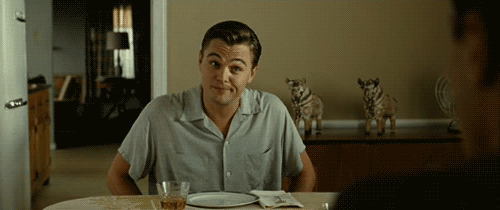
I could be better at this, and in fact a goal for this year is improving that part of my game. Part of it is joining more groups, guilds, and such where I can put up a profile. Part of it is reconsidering how I brand myself. Part of it is upping my resume and cover letter game (I may be a pretty okay writer, but this is not an area where I seem capable of bringing my A game). I would also be smarter to pay more attention to this here website—and to include a better professional portfolio. These are all things that help people take you seriously.
Business cards, no joke, can help—especially if a few friends or family members have some. I can’t tell you how many chances I’ve lost because I didn’t have a card. Just happened Tuesday. (Also, know right away what you would charge for certain kinds of work. You will be asked.) Another thing I’ve done: I’ve talked with the self-publishing wing of my local book store, and they give me referrals from time to time. I’m kinda patchwork in how I do it, but I also prefer long-term clients so that I don’t have to worry about it too often.
Another aspect of being taken seriously is the rates you charge. Strange as it may sound, people generally value your work the more you charge. If you’re cheap, they’ll assume you’re not any good. So on the same token, don’t respond to job offers or postings that underpay unless you really, really want the experience to serve some other need (i.e., a portfolio piece in a certain area). But even then, there are a thousand reasons not to sell yourself short on money.
#4: I’ve heard horror stories about people writing things for websites and having to either eat the cost or ask and ask and ask and sometimes go to court to get paid. How often does that happen to you (or does it at all)? Is there any particular person, type of work/client, or place you’d avoid?
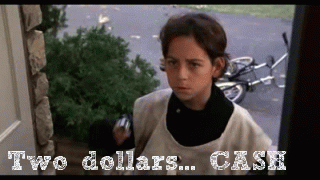
This has never happened to me—and that’s kinda crazy. I’ve seen it happen, and I know it happens. But if you’re interested in learning more about this topic, I’d really recommend checking out the Freelancers Union and all the blogging they do about it. Thanks to them, I feel very prepared to handle such a scenario if it ever arises.
So while my client radar has apparently been pretty good, if you see red flags, walk away or ask for protection (i.e., a contract or an up-front payment). For any larger time- or money-intensive project, I either ask for half the payment up front or otherwise develop a written payment plan that both sides agree to. Sites like Upwork have escrow services so that you can assure getting paid even if the client ends up being dodgy too. At least I think they do, haven’t used them in a while.
But I’d just say use your judgment. If something doesn’t feel right, it probably isn’t. I think it’s generally pretty obvious.
Have any more questions for me? Ask away!


February 8, 2016
How Do I Become a Freelancer? A Grossly Incomplete Overview
In a few hours, I will be a guest in an editing and publishing class at Western Washington University, where I earned both my undergrad and graduate degrees and more or less got my writing and editing career started. Somehow, I am now considered some kind of authority and get to talk about how I’ve managed to fumble my way through a career as a wordsmith. Trust me, I like the feeling. But I’m just confused as to when people started asking for my advice on things.
I think the biggest part of getting started down the freelancer’s path is knowing where to start—and what things to consider. So, in preparation for my presentation, I figured I might as well give a brief scattershot of how I began, and how I sustain, this little career I’ve carved out.
These are my thoughts. They’re far from comprehensive, but hopefully somebody happening upon this site might learn a thing or two in the process. So let’s get to it.
Create a Foundation
I don’t think I’ve ever spoken to anyone who became a full-time freelancer overnight. To really get going, you need to be able to prove you have the skills to get the job done. This means either working for someone first or working freelance on the side until you think you can sustain yourself.
Get a side job
I first stepped into the freelancer’s life within the first few months of finishing grad school. I had an opportunity to edit a dissertation, I enjoyed the experience, and I decided this kind of work would be fun to pursue full-time.
But while I had freelancing on my mind, I knew had to build up to it. So, I split my time. By day, I was a humble breakfast cook, flipping eggs and talking trash to my coworkers. By night, I was getting my first few writing and editing gigs. At a certain point, I realized I was working 60-70 hours a week—half of which was freelancing. My cooking job was now taking away from my freelance career, so I decided to take the leap full-time into my newfound world.
Find your bread and butter
Even the best freelancers have feast or famine moments. Sometimes I’m so busy that I work every day for a month. Other times, I’m trying to figure out how to get out of a rut where I’m only at half or three-quarters capacity. But here’s the tip: find a bread-and-butter job—or two. Basically, you want a steady, long-term client that always has work for you.
If later down the road you’ve figured out how to target big money projects that can enable you to ride out the ruts, great (no, seriously, good for you). But that probably won’t be in your first few years. I’ve had long-term jobs at POD firms, content farms, and marketing firms that, while the pay wasn’t always at the top of my range, have kept me going through all the down times. Reliable work pays the bills—and in a strange way, frees you up for my next bit of advice.
Find your passion projects
Find your bread and butter? Great! Use the rest of your time to find work that really gets you excited, that pushes you to up your game, or that takes you into a new pay grade. The good projects are out there, but they’re a little harder to find. But when you do find them, it will remind you why you chose this career path in the first place. Right now, I’m waiting with bated breath to see if a client’s excellent mountain climbing book I edited this past summer lands with a publisher. I’m pretty sure it will. And though I didn’t write it, I’ll be damn proud when it finds a home.
Keep your ear to the ground
Even when times are good, be on the lookout for the next job—and budget time in your week to do so. This is not only another way of minimizing the ruts, but it’s also a way to keep your career moving forward. I’ve learned it’s easy to get caught up in what you’re doing in the day-to-day if you’re busy. And really, that’s fine. But my goal is always to make a little more (and work a little less) each year, and the way to do this is to keep looking for new opportunities.
Some resources I’ve found helpful:
FreelanceWriting.com
Freelance Writing Gigs
Media Bistro
Networking (more on that later)
Learn How to be a Business
I’m a lot of things—writer, editor, poet, musician, you name it. Maybe you’re different than me, but I didn’t exactly take any business management or entrepreneurship classes when I had the chance, mostly because, well, I didn’t know I was going to become a freelancer. I still haven’t taken any formal classes (and I still want to), but I’ve learned quite a bit in the meantime.
It’s on you to pay for…
Well, everything. But it’s probably more than you think going into it:
Office space, equipment, and supplies
Advertising, memberships, subscriptions, etc.
Insurance, and retirement
Vacation and bonuses
All the other things I can’t think of right now
Here’s the thing I really wish I’d thought of—or that someone had told me (or that I’d thought to ask): The rates you charge must take all these costs into account. Making, say, $20/hr. as an employee is a lot different than making $20/hr. as a freelancer. In other words, if you want to gross, say, $40K a year (a nice modest amount), then you need to figure out how much more you need to net before expenses to end up at that number once all your other costs are taken into account.
Task and time management
Here’s the other thing: When you’re your own business, not all of your time is spent working jobs. Accounting is part of your job. Advertising is part of your job. Honing and learning skills is part of your job. Things I can’t think of right now are also part of your job. If you’re working eight hours a day on jobs and then doing the administrative side before/after, just remember that means you’re working more than full-time.
Now, getting started, that may be a little necessary. But your goal should be a normal work week (approximately 40 hours). I tend to work for clients five or six hours a day and spend the rest of my time on various administrative tasks (even answering e-mail takes a while). So find a system that makes sense for you. I use Asana religiously to keep me on task and juggling my varying obligations effectively.
Join Some Groups
Professional development is a part of any career path. Freelancing is no different—unless you’re happy doing the same thing 20 years from now (and if you are, power to you).
So learn. LinkedIn is actually pretty decent for this if you find the right groups and like the online thing (so, so much of your job is online).
But it’s great if you can do these things in person. I’m a member of the Northwest Independent Editors Guild and have hung out with Whatcom Writers and Publishers. I also get out to the AWP and Chuckanut conferences when I can. Honestly, I’d like to do more. Freelancing can be kinda solitary, and it feels really good to talk shop with people and remind yourself that other people do what you do too. At the very least, make friends in the biz.
Be Open
When I first got into this world, I was going to be an editor. That was it. Nothing more, nothing less. I knew I could edit, and I liked doing it.
Since then, I’ve expanded into copywriting, ghostwriting, content management, and even a little voiceover. And now, I really like being able to switch around between all these skills. It keeps me fresh, it makes me a lot more employable, and most importantly, it has given me great insight and experience into the many aspects of content production (see “Think Long-Term”).
Here’s the thing I’ve found: If a client likes you and asks you to do something you’ve never done before, be honest. I’ve been asked to do new and surprising things several times, and every time, I’ve given the same answer: “I’ve never done that before, but I understand the principles, and I’m willing to give it a shot if you’re willing to bear with me.” They’ll almost always say yes. Again, if your client likes you, they’d rather take a risk with someone they trust than go out and take a risk with an unknown.
Take Care of Yourself
For the first year or so of my freelancing life, I basically forgot that I had a body. I was so focused on getting this business going that I ended up in the worse shape of my life—and full of anxiety to boot. Now, I’m not advocating that you go out and get into triathlete-level shape, but go for a walk from time to time. Break up your day. Get away from your desk. Working from home means you don’t even need to get up and commute. You don’t need to move much to do your job. This is nice, but it means that you have to go out of your way to even go for a walk.
I started exercising. But you know what else I did? I took an occasional, on-and-off job catering weddings and events at a golf club. I get to flex my cooking muscle, socialize, and, best part yet, enjoy nearly free golf at a beautiful course. The point is this: If you stay at home all the time, you get creepy and lose your social skills. I don’t know about you, but I don’t have enough social skills to lose.
Think Long-Term
Finally, have a plan for your freelancing career. I’ve talked to enough freelancers to know that there are a lot of different ways to go with this, but the bottom line is that every year you should be looking to move your business forward. This can mean a lot of things—more fulfilling work, better pay, bigger projects, whatever. Even if you think you’ll eventually leave freelancing for a more traditional job, you want to keep growing. It will make you more employable.
Myself? I want bigger projects. I want to work with production teams and make some really fun, wonderfully stupid stuff. This year, I’m laying down the groundwork to make that happen. So here’s hoping for the best.
Have any questions that I didn’t cover here? Have some experiences you’d like to share? Want to tell me how wrong I am about all this? Leave me a comment!


February 1, 2016
Welcome to Choppy’s Blog
Hello, dear reader. I see you’ve found my blog. Fair warning: I’ve posted a good amount here over the years, but nothing especially recently. If you want to see what I’ve got going on more on the regular, follow me on Facebook, Twitter, or Instagram. I also post reviews and such over at the Heavy Feather Review blog, so there’s always good reading there.
And of course, if you’re interested in any of my professional services, check out my LinkedIn page or drop me a line.


February 3, 2015
Wild Grass on the Riverbank, by Hiromi Itō
I’ve never read Hiromi Ito, but it’s reviews like this that make me wish I had. I especially appreciate the way the reviewer discussed the intermediation of translation, how some the linguistic possibilities of its parent language are inevitably lost, but how new possibilities are gained in the transition to the new language. Fascinating stuff.
 Originally posted on Heavy Feather Review:
Originally posted on Heavy Feather Review:
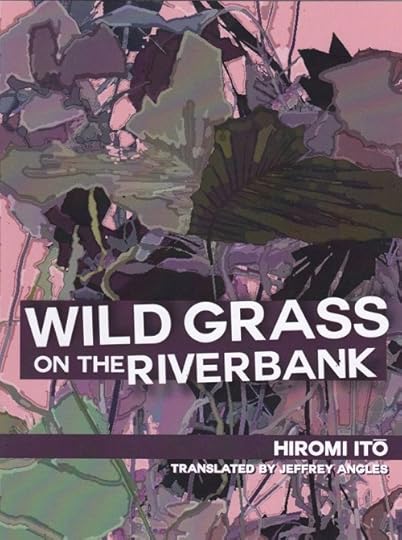
Wild Grass on the Riverbank, by Hiromi Itō (translated by Jeffrey Angles). Notre Dame, Indiana: Action Books. 103 pages. $16.00, paper.
(Be carried from your native land to foreign soil, where you will grow wild and propagate)
Marking her return to poetry, Wild Grass on the Riverbank by Hiromi Itō is first and foremost a textual space where language can seek out the wildest, most visceral modes of expression. This lush, entangled narrative poem follows the coming of age of a young girl, who is shuttled back and forth by her mother between a wasteland—reminiscent of arid Southern California—and an overgrown riverbank based on the city of Kumamoto in southern Japan.
More than a Bildungsroman in verse, more than an epic for the modern ages, Wild Grass on the Riverbank subverts traditional literary and symbolic binaries—poetry vs. prose vs. drama, stream of consciousness vs. fragmentation, folk tales and…
View original 871 more words

January 28, 2015
It’s Been That Long, Huh?
The good thing about these long disappearances is that it means I’ve been up to good things. The bad thing is that I often neglect to share it here. If you’re ever looking for more of a day-to-day from me, my Twitter, Facebook, or Instagram pages are probably the better spots. This place is more like a hub or a repository, I suppose, though I hope to start sharing a little bit more about my professional world here in the coming months.
In the meantime, some announcements:
I’m now editing for Heavy Feather Review . They’re good people, and I’m very happy to be a part of a lit journal again. Why not submit some work?
I had two poems published up on Spork Press last fall.
I’ll have a poem coming out with Salt Hill in a couple months.
Anyway, that’s about it for now. But stay tuned for some more semi-frequent updates.

June 28, 2014
What I’m Reading – June 2014 Edition
I love reading. I’d better. It’s sorta what I get paid to do. But with professional obligations to read and write, it’s sometimes difficult to remember to read and write for fun. But I’ve been making more of an effort lately, and I’ve made some headway through my substantial to-read list. Why not follow me on Goodreads to keep abreast of what’s going on with my bookshelf?
Here’s what I’ve finished lately, in no particular order.
1. Columbia Poetry Review #26
Always read the journals that have published your work, even if it takes you a year to do so. So many great writers in here, including bigger names like Rae Armantrout and Oliver de la Paz along with some great poets whom I’ve had the pleasure meeting and drinking with such as Nick Courtright, Abigail Zimmer, and Daniel Scott Parker. I dog-eared a lot of the pieces in this nearly 200-page journal, but other poets of mention that particularly got to me were Kimberley Grey, JA Tyler, Tony Trigilio, Justin Limoli, and Traci Brimhall. You can pick up your copy of issue 26 here, or just get a subscription while you’re at it.
2. The Invention of Monsters (iO Books, 2014)
by Summer Ellison & C Dylan Bassett
Such a great little chapbook. I’ve read it like five times over the past several weeks. Monsters, monsterism, and monster-related ideas always fascinate me, as do poetry collections set as as one-act plays. The language is intoxicating, and you find more connections with each read-through. I wanted to give you a link to buy this, but it might be all gone. Check out the other iO titles instead.
3. Oyez Review, vol. 41
Always read the journals that have published your work, pt. 2. I got through this collection rather quickly, which I always take as a good sign. Some really standout work by D. Dina Friedman, Jim Warner, and Cathy Warner. Get your copy here!
4. The Holy Ghost People (Plays Inverse, 2014)
by Joshua Young
Obviously I’m going to read whatever my Diegesis collaborator is going to put out. And he puts out a lot. He’s kinda super prolific. There are certain themes you can always count on with my friend’s work: murder and religion. He never quite approaches these themes in the same way though, so it has been interesting to watch the way he unpacks these concepts through the course of his different collections. Here, like When the Wolves Quit, he uses the play-in-verse format to explore this world, where aliens have arrived to tell the humans about why they’re wrong about god. There’s this yearning in the collection, this feeling that opposing sides secretly want to comes together (“We drink from the same water”) but just can’t quite get there. You can buy it here.
5. Gigantic Sequins 5.1
When I was at AWP in Seattle this year, I came across the journal’s cover (see above) and pretty much had to buy it. Fortunately, it was as much a pleasure to read as it was to look at. Standout writers include Carolyn Williams-Noren, Rachael Katz, Matthew Fee, Chase Burke, and Pablo Pinero Stillmann. You can get your copy here.
6: So You Created a Wormhole: The Time Traveler’s Guide to Time Travel (Berkley Trade, 2012)
This book is fun-ish, but don’t mistake it for some high art. It’s a comedic book meant for small doses. And that’s why it works so well as toilet literature. There are so many books in my house that even my bathroom has a library. The authors rely a great deal on that kind of modern, self-aware humor that I myself am guilty of from time to time, but which now I realize grows pretty tiresome when spanning the entire length of the book. The concept of the book is fine, as is the execution. But I would have recommended the authors reconsider the structure during the planning stage. I’m not sure why they thought 320 pages of essentially one-liners would work.


June 21, 2014
A Belated Music Announcement – The Rise of Amniotic Buzzsaw
The past several months I’ve been working on finishing an album that I recorded with my friend Jake Frye (of Jesus on the Moon fame) while we were both still grad students at Western Washington University back in 2009–10. That’s a long time to sit on recordings, I know, but we were so proud of them that we knew we had to do some sort of formal release eventually. But first we had to master the tracks, and then we had to have album art done. And doing all that stuff in your spare time usually makes it take time.
And then when we finally got it out a few weeks ago, I forgot to share it here on my blog, though I shared it just about everywhere else. So, I present to you the first full-length album I’ve actually completed: Amniotic Buzzsaw’s With Pluto Gone, What’s to Become of Uranus?
There are some really great stories behind the creation of each song. We had an approach that we called “the Buzzsaw Way,” a process by which we’d get together and create a different set of obstructions for the writing of each song. It was all very structured—but very spontaneous. I’d highly recommend checking out the Amniotic Buzzsaw website to learn what it was all about.
And, if you feel like checking us out other places:
The Amniotic Buzzsaw Facebook page
Amniotic Buzzsaw on Twitter (@AmnioticBuzzsaw)
FREE DOWNLOAD of our album on Bandcamp


May 17, 2014
Diegesis Reviewed in Front Porch Journal
I had a pleasant surprise the other day when I discovered that Front Porch Journal recently reviewed The Diegesis, the 2013 poetry collection cowritten with Joshua Young and released by Gold Wake Press.
It was a very flattering review. But mostly I’m happy to see that at least someone is still reading the collection a year after its release. I’ve been learning that while poetry collections through indie presses may not sell in the tens of thousands (or really anywhere even close), but sometimes they can have a nice, slow burn. Here’s to slow burns.
Want to read The Diegesis? Buy a copy through me here.
Want to learn more about The Diegesis? Check out the blog archives.


May 15, 2014
A Farewell From Anyway, Soon
About a year and a half ago, my band, Anyway, Soon set out to record what was intended to be our first and final album. The duties of real life were taking their priority with members moving to different area codes, but we wanted to set down our final batch of songs as a sort of record of what we had done.
Sadly, although the recording process generally went very well, by the time everyone had dispersed, we just hadn’t gotten far along enough on the tracks to release a complete album, as intended. We did finish this one song though, which you can listen to below.
There are rough mixes of the other songs on our drummer/engineer’s Soundcloud page. It was a blast playing with these guys, and if I had one regret, it’s that I never found myself able to commit the amount of time/effort into the project as it deserved. But such is life.


April 17, 2014
A New Poem Up In TAB: “The Girl Who Thought She Knew Something About Monsters”
I’m bummed I’m not taking part in National Poetry Month this year. But I have a good reason, and I’ll be sharing that with you soon, too. It’s the most overdue of all the overdue news. It’s the most hyperbolic thing ever.
In the meantime, I had a new poem up over the weekend in TAB: The Journal of Poetry & Poetics. It’s called “The Girl Who Thought She Knew Something About Monsters,” and it’s the continuing adventures of someone from The Diegesis. It’s the beginning of a new project.
Why not give it a read?




